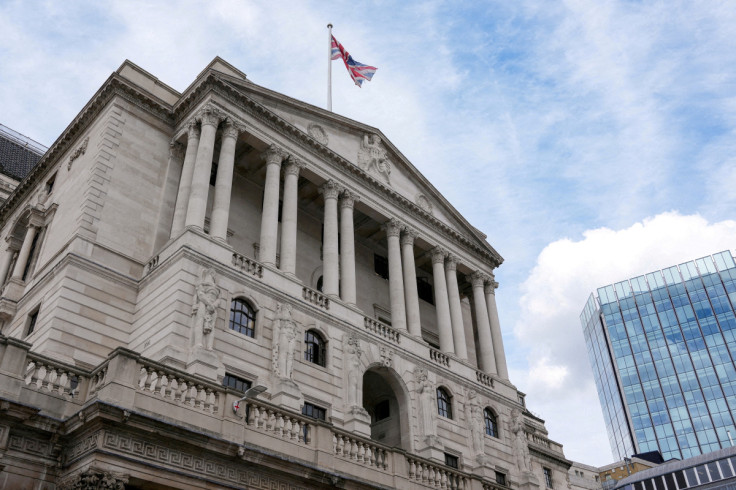Bank of England to raise Bank Rate by 50 bps in Dec, peak at 4.25% in Q1: Reuters poll
The Bank of England will press on with interest rate rises to battle inflation even though Britain is heading into a long albeit shallow recession, with consumers facing an extended cost of living crisis, a Reuters poll of economists found.

The Bank of England will press on with interest rate rises to battle inflation even though Britain is heading into a long albeit shallow recession, with consumers facing an extended cost of living crisis, a Reuters poll of economists found.
Finance Minister Jeremy Hunt announced more pain in an autumn financial statement last week, with tax rises now and spending cuts further ahead, so any relief on borrowing costs would have been welcomed by indebted households.
After adding 75 basis points to Bank Rate earlier this month the Monetary Policy Committee will add a more modest 50 basis points on Dec. 15, taking it to 3.50%, the Nov. 18-22 poll found. In an October poll, the rate was expected to end this year at 3.75%.
Over 75% of respondents, 43 of 56, opted for 50 basis points while 13 said 75.
"In terms of being able to pivot back to 50 I think there was enough in the autumn statement to calm some of the fears at the Bank of England on the outlook for next year," said James Smith at ING.
Hunt's budget plan came after the blow dealt to Britain's fiscal reputation by former prime minister Liz Truss' unfunded tax cuts, which sent the pound to an all-time low against the U.S. dollar and forced the BoE to prop up bond markets.
"When you listen to what some of the MPC have been saying, they tried to send a very strong dovish signal in November and that was to try and take some of the heat into what is priced into markets. It does also depend a little on the Fed," said ING's Smith.
At the Nov. 3 meeting Governor Andrew Bailey told investors, who were pricing in a peak around 4.70%, their rate hike bets looked too big.
The United States Federal Reserve has made four consecutive 75 basis point increases but was expected to shift down the pace to a 50 basis point move next month.
December's move by the BoE will be followed by another 75 basis point lift across its two meetings next quarter, with the poll suggesting the Bank will then pause at 4.25%, matching the terminal rate given last month.
But when asked about the risk to their terminal rate forecast, 15 said it was that it would come later and be higher than they expect and seven said that it would come earlier and be lower.
The Bank's dilemma is inflation is running at more than five times its mandated 2% target - 11.1% in October - and was not expected to reach the goal until at least 2025, yet it is raising interest rates as the country enters recession.
Britons have been hit by soaring energy prices following Russia's invasion of Ukraine, food prices rising at the fastest pace since 1980, and disruptions to supply chains exacerbated by Britain's departure from the European Union.
Asked how long before the cost of living crisis eases significantly, six said it would be 6-12 months while ten said it would be 1-2 years. One said it would be over two years.
When asked about the probability of a recession within a year, poll respondents gave a median response of 90%, sharply higher than the 75% given in October.
Quarterly gross domestic product (GDP) forecasts supported that number, with the economy predicted to shrink 0.4% this quarter and next and 0.3% in the following one. A 0.2% contraction was pencilled in for last quarter.
Across next year the economy was expected to contract 0.9% while in 2024 it will expand 0.9%, the median view from the poll of 60 economists predicted.
Inflation will peak at 10.7% this quarter, the poll found. It will then gradually fall, dipping to 10.0% next quarter and then to 7.7%, 6.5% and 4.5% in the following quarters.
(For other stories from the Reuters global economic poll:)
Copyright Thomson Reuters. All rights reserved.




















